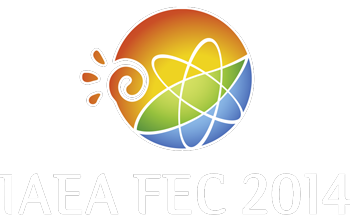Speaker
Prof.
Geert Verdoolaege
(LPP-ERM/KMS and Ghent University)
Description
In regression analyses for deriving scaling laws in the context of fusion studies, usually standard regression methods have been applied, of which ordinary least squares (OLS) is the most popular. However, concerns have been raised with respect to several assumptions underlying OLS in its application to fusion data. We present a new regression method that allows arbitrary distribution models and regression laws, rendering the technique particularly useful in the context of fusion research. The method is based on probabilistic modeling of all variables involved in the scaling expression, using adequate probability density functions (PDFs) and a natural similarity measure between them (geodesic distance). We hence obtain an optimization-based generalization of OLS regression, which we term geodesic least squares (GLS). The key advantage over existing methods is that, while still requiring a proposal for the deterministic and stochastic parts of the regression model, the dependence on that particular model is greatly reduced, allowing much more flexibility for estimating the model parameters that best fit the data. We demonstrate this important quality by means of a synthetic data set and by estimating the scaling law for the power threshold for the L-to-H transition in tokamaks, using data from the multi-machine ITPA database. The GLS technique indeed displays a greatly reduced susceptibility to data outliers and model misspecification. Furthermore, the prediction of the power threshold for ITER is higher than that obtained with OLS on the same database. Future work will address application of the method to various regression problems in fusion, particularly in cases with substantial and possibly non-Gaussian error bars.
| Country or International Organisation | Belgium |
|---|---|
| Paper Number | EX/P4-1 |
Author
Prof.
Geert Verdoolaege
(LPP-ERM/KMS and Ghent University)
Co-author
Prof.
Jean-Marie Noterdaeme
(IPP and Ghent University)

